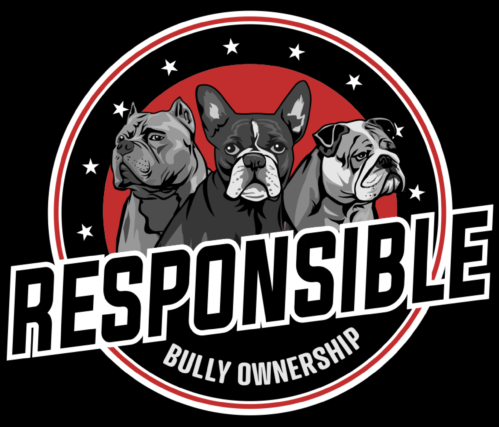When it comes to our beloved bully breed dogs, we want to ensure they live happy, healthy lives. Part of responsible ownership is understanding and addressing potential health issues. Allergies are a common concern for many dog owners, and there’s a lot of misinformation out there, particularly when it comes to food allergies in our furry friends. Let’s bust some myths and set the record straight.
Myth 1: Food Allergies Are Very Common in Dogs
NOPE! While it may seem like every other dog has a food allergy, the reality is quite different. Actual food allergies are relatively rare in dogs, affecting less than 0.2% of the dog population. That’s a tiny fraction!
Myth 2: Food Allergies Are Triggered by Protein
This one is a bit tricky. Food allergies are indeed triggered by proteins, but it’s not that simple. While it’s true that proteins can be allergenic, the most common allergenic proteins in dogs are found in specific ingredients, such as beef, chicken, and dairy. The fat content in the food, however, is not a common allergen.
Myth 3: Most Allergies in Dogs Are Food-Related
This is where things get interesting. Contrary to popular belief, the majority of allergies in dogs are not related to food at all. Instead, they are caused by environmental factors like dust, pollen, mold, and, believe it or not, those pesky flea bites.
Myth 4: Flea Saliva and Environmental Substances Don’t Contain Protein
Actually, they do! Flea saliva and environmental substances indeed contain proteins that can trigger allergies in sensitive dogs. Flea allergies are more common than you might think, affecting approximately 1.8% of the dog population. Environmental allergies, such as pollen and dust, also contain allergenic proteins, affecting about 3.6% of dogs.
The Truth: The Majority of Allergic Dogs Suffer from Environmental or Flea Allergies
Now, let’s put it all together. If we look at the statistics, we find that only 3.6% of all dogs with allergies have food allergies, while the other 96.4% suffer from environmental or flea allergies. This means that if your bully breed dog is showing signs of allergies, it’s much more likely to be related to the environment or those tiny, irritating fleas.
What Should You Do If You Suspect Allergies in Your Bully Breed?
- Consult Your Veterinarian: If you notice any signs of allergies in your dog, such as itching, skin irritation, or gastrointestinal problems, it’s essential to consult your veterinarian. They can perform tests to determine the cause of the allergies and provide guidance on treatment.
- Keep a Close Eye on Your Dog: Monitoring your dog’s behavior and health is crucial. Allergies can develop at any age, so be vigilant and take note of any unusual symptoms.
- Maintain a Healthy Diet: While food allergies are rare, it’s still important to provide your bully breed with a well-balanced and high-quality diet. Discuss dietary options with your vet to ensure your dog’s nutritional needs are met.
- Flea Prevention: Regularly use flea prevention measures to protect your dog from those itchy culprits. Consult your vet for the best flea control options for your specific dog and region.
In conclusion, food allergies are indeed rare in dogs, including our beloved bully breeds. Most canine allergies are caused by environmental factors like pollen and dust or those irritating fleas. Understanding the true nature of allergies can help you provide the best care for your furry friend, ensuring they lead a comfortable and happy life. Remember, when in doubt, consult your veterinarian for expert advice and guidance.

